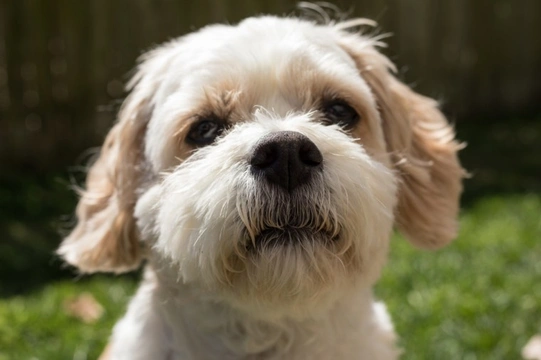
10 Key Things to Know About the Cavachon Dog Before Buying
The Cavachon is a charming small dog, a hybrid between the Cavalier King Charles Spaniel and the Bichon Frise, growing in popularity in the UK for its affectionate nature and family-friendly traits.
This crossbreed offers puppy buyers a blend of traits from two breeds, but their appearance and temperament can vary even within litters, making it important to know what to expect before purchasing.
If you're considering bringing a Cavachon into your home, here are ten key things to know to ensure your choice is right for you and your lifestyle in 2025.
1. The Cavachon is a Hybrid, Not a Kennel Club Registered Breed
The Cavachon is a designer crossbreed, resulting from Cavalier King Charles Spaniel and Bichon Frise parents. Because of this hybrid status, it is not recognised as a pedigree breed by the UK Kennel Club and is not eligible for registration or participation in official dog shows.
While this does not detract from their qualities as pets, it means there is no formal breed standard, so puppies can vary in looks and temperament.
2. Origin and Parent Breed Influence
The Cavachon derives its traits from its two parent breeds. The Cavalier King Charles Spaniel contributes a gentle, loving temperament while the Bichon Frise brings a curly, low-shedding coat and playful personality.
Understanding these breeds is helpful in anticipating the Cavachon’s behaviour and care needs.
3. Appearance Can Be Variable
Cavachons typically stand around 23-46 cm tall and weigh between 5-11 kg. Their coat may be soft, wavy or curly, with colours ranging from apricot and white to combinations of black or tan markings.
The variability means siblings from the same litter might look quite different, so there’s an element of surprise when choosing your puppy.
4. Grooming Needs Require Regular Attention
Their coat tends to be soft and low shedding, capturing loose hair instead of spreading it around the home, which can reduce allergens, but regular grooming is essential.
You should brush your Cavachon’s coat at least once a week, or ideally more frequently, to prevent matting. Many owners arrange professional grooming every 4-8 weeks.
Additional grooming care includes nail trimming, ear cleaning monthly, and regular teeth brushing to prevent dental problems common in small breeds.
5. Moderate Exercise Is Important
Cavachons have moderate energy levels and thrive on approximately 30 to 45 minutes of exercise daily, split into two sessions, such as morning and evening walks.
They enjoy leisurely walks, playtime, and mental stimulation through interactive games. Proper exercise helps maintain a healthy weight and prevents behavioural issues.
6. Social and Companion Needs
This breed is known for being very sociable and thrives on human interaction. They dislike being left alone for long periods and can develop anxiety or destructive behaviour without company.
If you work long hours or travel frequently, a Cavachon may struggle unless arrangements for companionship are made.
7. Health Considerations to Research
While crossbreeds often benefit from hybrid vigour, Cavachons may inherit health issues from both parent breeds.
Common problems include:
- Heart conditions such as Mitral Valve Disease linked to the Cavalier King Charles lineage.
- Eye issues including cataracts.
- Skin allergies like atopic dermatitis.
- Orthopaedic conditions such as patellar luxation and hip dysplasia.
Regular veterinary check-ups and purchasing from breeders who perform health screening are vital to minimising risks.
8. Price and Cost of Ownership
The average price for finding a Cavachon puppy in the UK typically ranges around £500-£700 but can vary.
These small dogs are generally less expensive to keep due to their size; however, always budget for unforeseen veterinary costs, grooming, food, insurance, and toys.
9. Suitable for First-Time and Experienced Owners
Cavachons are often recommended for first-time dog owners due to their manageable size, moderate exercise needs, and affectionate nature.
They adapt well to various living spaces, including flats, provided their social and physical needs are met.
10. Choosing a Responsible Breeder
When looking for a Cavachon, select a reputable breeder who is licensed and performs comprehensive health testing on parent dogs and puppies.
Reputable breeders should be transparent, provide health and vaccination records, allow you to meet puppies and parents, and raise their litters in clean, socialised environments.
Examples of trusted breeders in the UK include Cavachon breeders on Pets4Homes.
Summary
The Cavachon is a delightful hybrid dog suited to many families and individuals seeking a small, affectionate companion. Understanding their hybrid nature, grooming and exercise needs, health considerations, and breeder choice is crucial to a happy, long relationship with your dog.
Always research thoroughly and prepare for responsible ownership to give your Cavachon a loving and healthy home.



